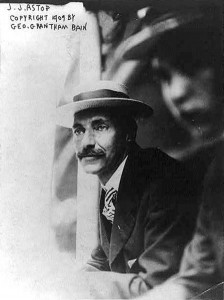
IN an astounding series of videos at Makers.com, Facebook COO Sheryl Sandberg speaks of the life of a woman executive and the importance of closing “the ambition gap.”
“We’re not making progress at the top,” she says. Women are not achieving enough in the work world because they concede to antiquated standards. As for herself, it’s important for her to leave her children every day. That way, Facebook can “touch more people.”
The perfect way for a woman to balance work and family, Sandberg said, is to marry a woman. She married a man (well, actually two of them), but that’s only because he (her second husband) was a person who was willing to do 50 percent of the housework and childcare. “If you marry a man, find the right one,” she said. “If you can marry a woman, that’s better because the split of two women in the home is better, the data shows.”
Sandberg, who is Facebook’s chief of operations, presents the familiar feminist vision of revolutionizing society and the basic nature of men and women. Men should feel as guilty as women when they leave their children under someone else’s care. Women should run half society’s institutions and men should run half the homes.
“We still live among expectations regarding childbearing even among modern families …. that the woman is default in charge [of childcare] … and if the woman is default in charge,” she is not going to achieve as much as a man.
Sandberg said she is ashamed to admit she leaves work at 5:30 every day, ashamed not because she gives her children too little time but because it suggests to others that she does not work enough. “I walk out of this office every day at 5:30 so I’m home for dinner with my kids at 6, and interestingly, I’ve been doing that since I had kids. … I would say it’s not until the last year, two years that I’m brave enough to talk about it publicly,” she said.
She returns to her work e-mail after dinner.
She tells young women: “Be ambitious. The world is still run by men.”
“Lean into your careers. Don’t make sacrifices now for children you don’t even have yet because that almost guarantees that you won’t have a job worth staying for.” She said she was shocked when interviewing a female job candidate to learn the woman was concerned about overworking even though she didn’t have a boyfriend yet.
She said women should not care what other people think about their lives, as she once did when she was criticized for divorcing her first husband. “You can’t live by what other people think.”
Interestingly, Sandberg is against corporate affirmative action for women. There’s probably a good reason for this. She’s a CEO. She doesn’t want to be forced to hire women – who take maternity leaves and want to leave work at 5:30 – either. Sandberg, however, was probably at some point a beneficiary of affirmative action.
Sandberg, who worked for the Treasury Department under the Clinton administration and for Google, is clearly an ambitious and aggressive woman and yet she ends many of her points with the familiar, apologetic interrogative that is common among young women today. It’s a brilliant performance.
Sandberg does not, however, address the most important question of all: Why? Why should women value the life of a corporate drudge, even the life of a very powerful one?
(more…)
![bigstockphoto_Black_Flowers_4800530[1]](https://thinkinghousewife.com/wp/wp-content/uploads/2012/04/bigstockphoto_Black_Flowers_48005301-150x105.jpg)









